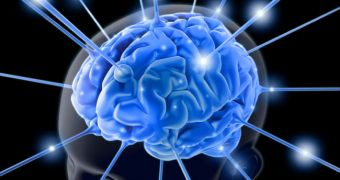The reason why we experience “what was I thinking?”-type moments is the fact that portions of the brain literally go for a nap at times, logging off and leaving no one behind the wheel. This is the conclusion of a new study that investigated this common behavior in rat models.
The rodents offer a good analog for humans in this regard, and this is why scientists believe that the findings made by studying the animals could also have applications for us as well. They say that rats too experience such moments of disconnect when they are we tired, just like us.
The human brain has evolved in such a manner that its primary goal is to conserve energy. If it left itself to its own devices, the organ would literally consume massive amounts of energy from all over the body, leaving little “power” for other segments and processes.
It also needs to rest from time to time. Sleep boosts and consolidates memory formation tremendously, and so when the two conditions come together, you get the recipe for instant neural naps. At least, this is what the rat study indicates.
The work, carried out by experts at the University of Wisconsin-Madison (UWM), demonstrates that certain nerve cells or neural pathways can simply disconnect, and enter a sleep-like state, even if the brain as a whole seems to be awake.
“Even before you feel fatigued, there are signs in the brain that you should stop certain activities that may require alertness. Specific groups of neurons may be falling asleep, with negative consequences on performance,” explains Dr. Chiara Cirelli.
The investigator, who holds an appointment as a professor of psychiatry at the UWM School of Medicine and Public Health, adds that the new research was carried out using a technique called electroencephalography (EEG).
This research method enables scientists to keep track of the brain waves circulating on the cortex of both humans and animals. Usually, specific patterns can be discerned when the test subjects are either sleeping or awake.
“We know that when we are sleepy, we make mistakes, our attention wanders and our vigilance goes down. We have seen with EEG that even while we are awake, we can experience shorts periods of ‘micro sleep',” the team leader adds, quoted by PsychCentral.
The next step in this research is the continuation of EEG studies on human subjects. This could enable scientists to certify that the same phenomenon goes on in our species as well.

 14 DAY TRIAL //
14 DAY TRIAL //